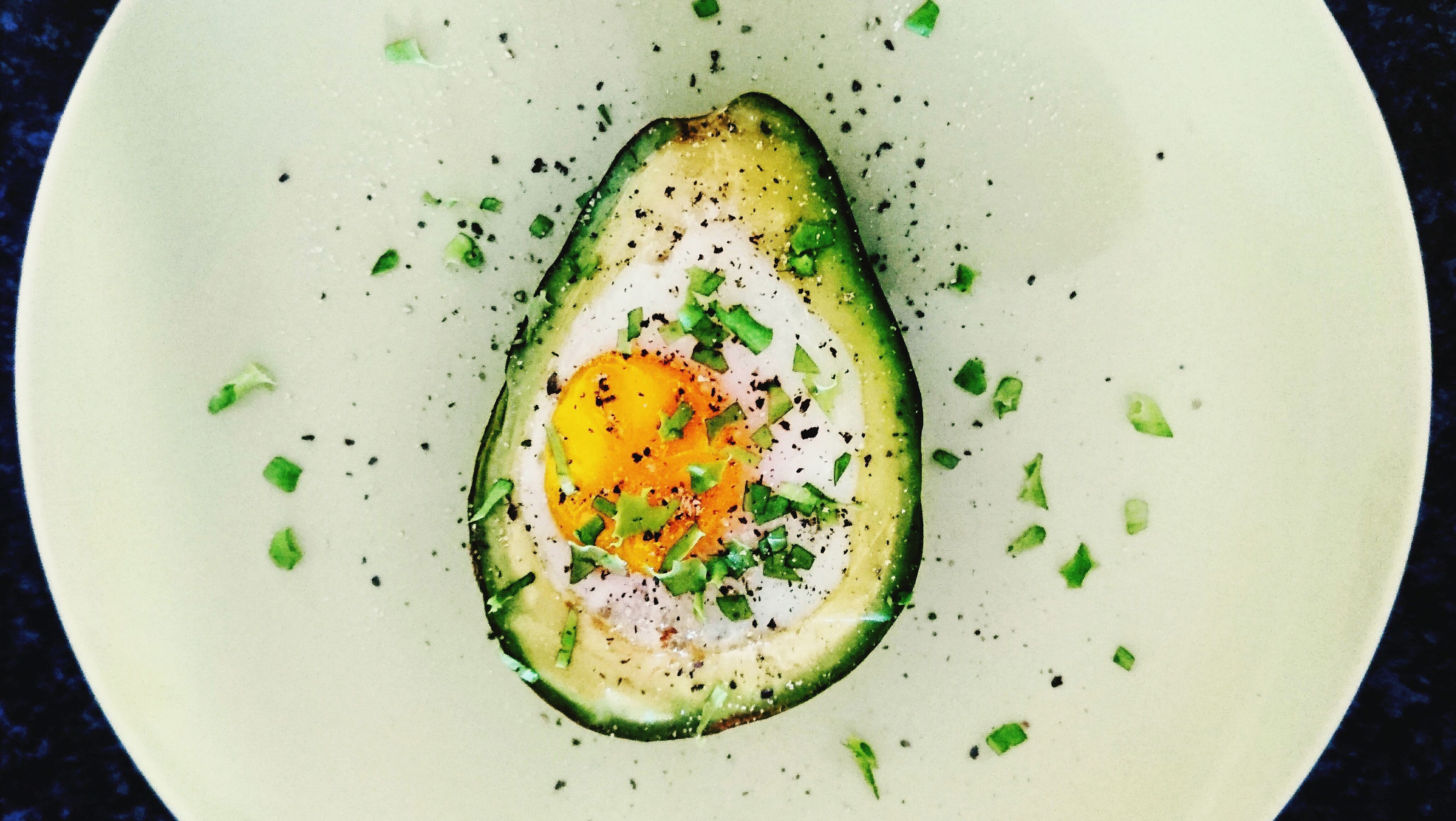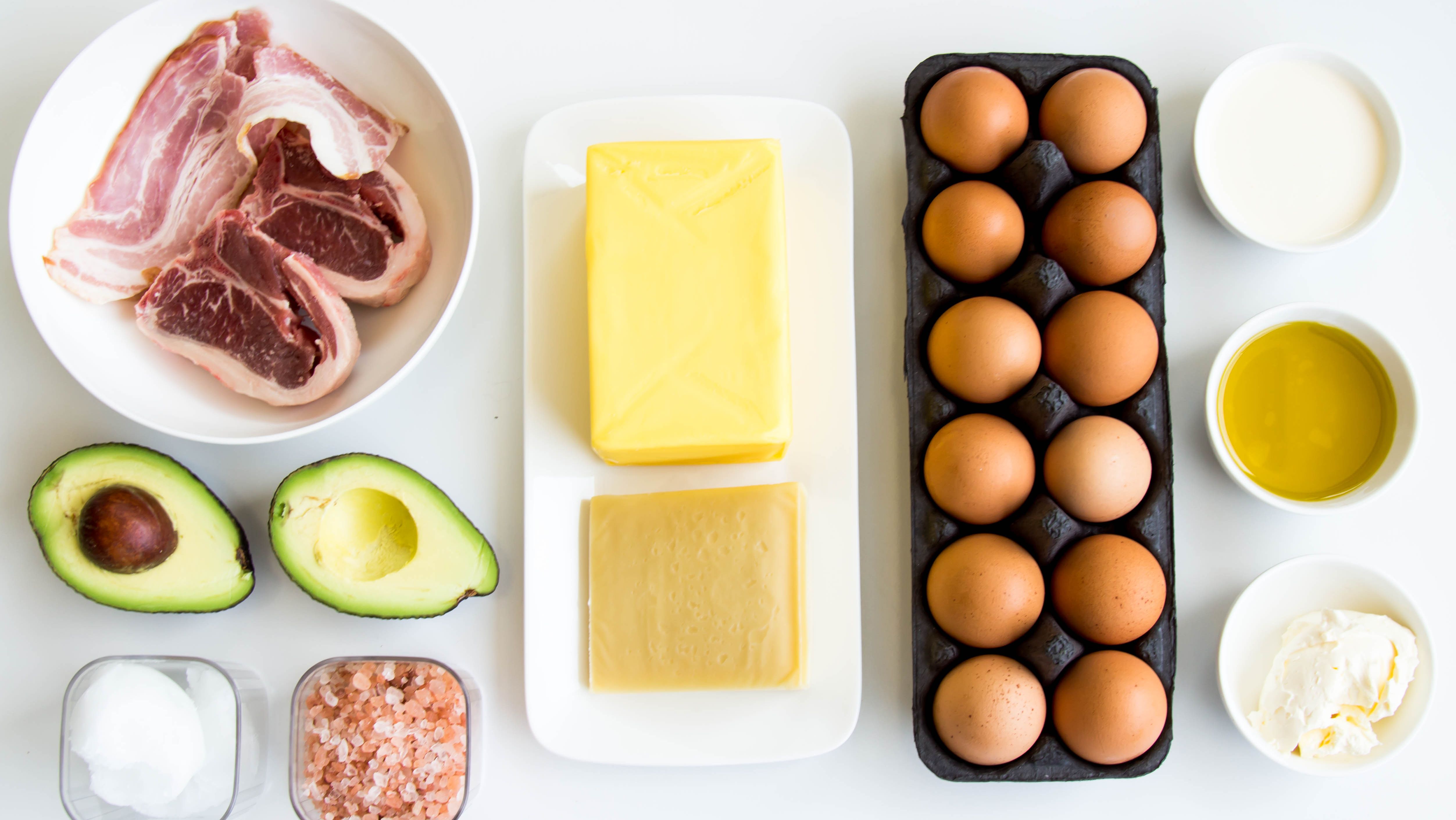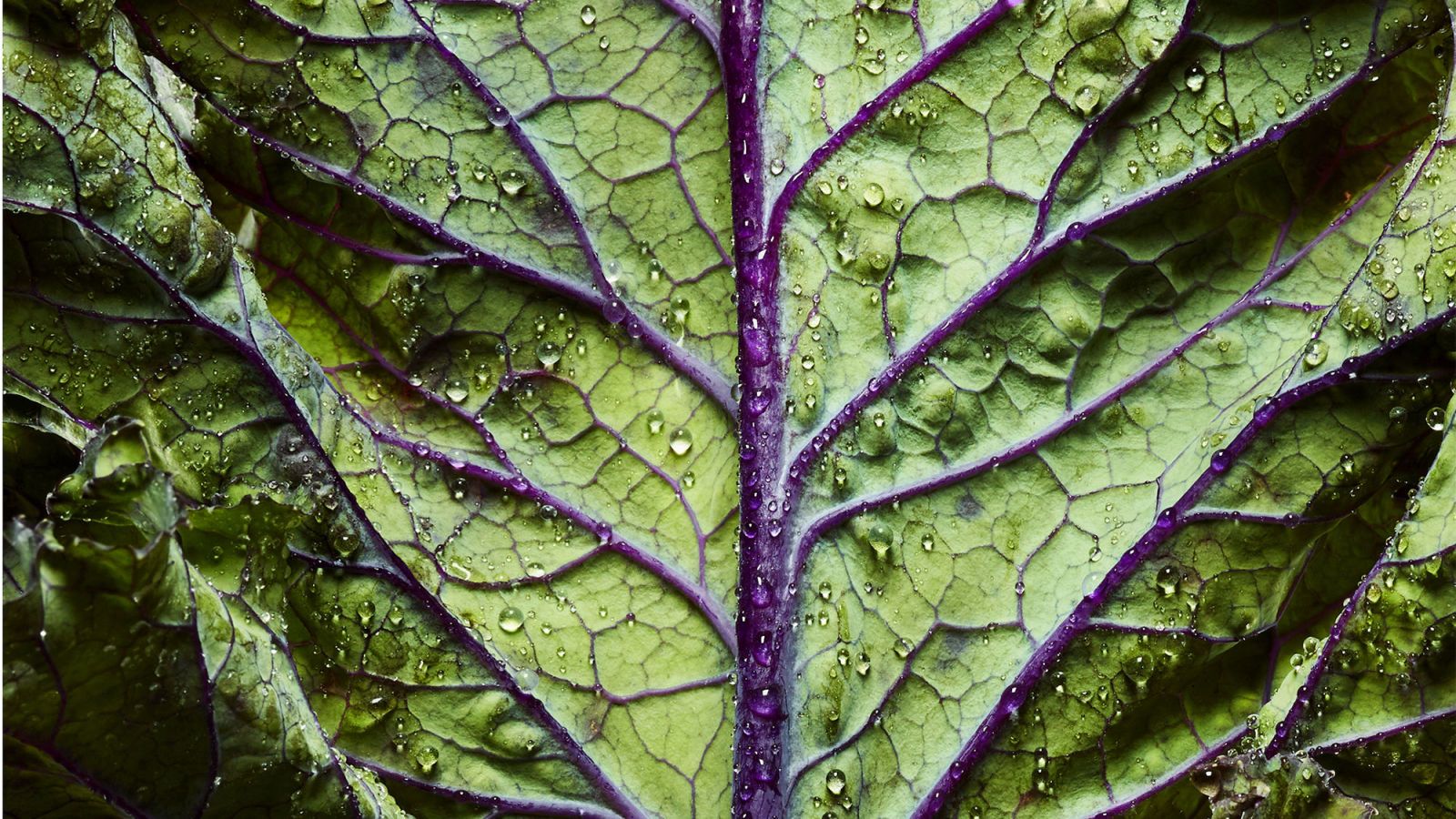The Keto Diet: What It's Actually Like to Follow This Super Popular Eating Plan
How did a fringy high-fat diet developed to treat epilepsy become the latest trend for power women? And, more important, does it work?


Carbs are high on the list of Joyful Things Society Hates. Some types have been blamed for obesity, cancer, Alzheimer’s, diabetes, and heart disease, and we’ve been cutting back on them for years, most dramatically when the low-carb Atkins diet became popular in the early 2000s. If you’ve ever tried to lose weight, you’ve probably done so by reducing your carb (or, more specifically, sugar) intake. And if you’ve heard of the keto diet—which you likely have, as celebrities like Kourtney Kardashian, Halle Berry, and Alicia Vikander make it increasingly popular among women—you’ve probably figured, “Here we go again.” But the keto (short for ketogenic) diet is different.
Not only does it take carb-cutting to another level, it fundamentally changes the way you access energy. Here’s how: By altering your diet so that up to 90 percent of your calories come from fat, about 10 to 20 from protein, and around 5 from carbs, you shift your body into nutritional ketosis, a metabolic state. Typically, glucose (a sugar) and glycogen are what powers you, but “when you’re in ketosis, your body burns body fat and ketones—types of acids produced in the liver—for fuel instead of sugar,” explains Josh Axe, a clinical nutritionist and doctor of natural medicine. The promise: Your energy levels improve (minimal sugar crashes), you burn more fat without feeling hungry, and you decrease chronic inflammation, which is at the root of many medical conditions and diseases.

'Keto is the diet Alicia Vikander reportedly used to get in shape for Tomb Raider.'
It’s no wonder the diet has exploded. Hundreds of thousands of people have posted pics of their #ketodinners, #ketotransformation, and#ketobaking, and Google searches on the topic quadrupled throughout 2017. Early adopters were the obvious proponents—pro athletes, gym bros, and those with medical conditions—but recently something interesting has happened: A certain type of jet-setting, wellness-focused woman got on board. Gwyneth Paltrow served keto food at her In Goop Health summit last summer. Fitness models tout its benefits on YouTube. And fashion influencers recommend it to their followers. Makeup artist turned Internet star Shayla Mitchell (a.k.a. @makeupshayla), for example, has told her combined social following of nearly three million that going on the diet was one of the best decisions she ever made and that it helped her lose 25 pounds. It also makes sense that the keto diet—which emphasizes counting macros (fat, carb, and protein intake in grams) over calories—has picked up steam as more women have turned to high intensity interval training (HIIT), weight lifting, and competitive group fitness classes: You can’t fuel a Barry’s Bootcamp class with green juice and a cigarette.
So, does this mean bacon and butter are the new cold-pressed juice and kale salad? I’m not so sure. Some women must limit themselves to 20 to 30 grams of net carbs a day to achieve ketosis (net carbs are total carbs minus fiber), but even people with super healthy habits eat considerably more than that. In fact, one large green juice, a large banana, or a quinoa bowl could put you over the limit. You also have to watch that you don’t exceed your protein cap (about 68 grams a day for a 150-pound woman). “Some excess protein you eat turns into glucose,” explains Axe. Then again, think of all the foods you can have. Butter! Cheese! Oil! Remember: This isn’t just a low-carb diet; it’s a high-fat one.
It may sound too good to be true, but there is legit science at work.
It may sound too good to be true, but there is legit science at work. The diet became popular as a treatment for epilepsy—and an effective one at that. It’s been shown to reduce seizures in adults and kids, possibly by changing the expression of certain genes associated with brain function. It also has promise as a treatment for some forms of cancer. “Cancer cells can’t access energy from ketones, so they starve when you deprive them of sugar,” says Carla Prado, an associate professor of nutrition at the University of Alberta in Canada. In fact, part of the cool-girl keto pitch is a suggested viewing of The Magic Pill, a 2017 Netflix documentary that highlights the medical benefits with compelling personal stories: a woman with asthma who goes off her inhaler, a diabetic who loses 45 pounds and quits her insulin, and another whose tumor started shrinking. And contrary to popular belief, a high-fat diet doesn’t necessarily translate to heart and cholesterol problems, Prado says, especially if you’re focusing on unsaturated fats like those in avocado and olive oil.
A cancer-free life filled with oil sounds freakin’ amazing, but is eating this way for the longterm actually possible? I mean, what do you do with all the fat? Are you supposed to throw back olive-oil shots? Blend coconut oil with butter for a fat-on-fat smoothie? I had to find out for myself. So, I downloaded a food-tracking app called Carb Manager that rates foods according to their keto-friendliness. (Bacon gets an A; chickpeas get an F.) I stocked up on something called Kitu Super Creamer, a creamy sugar-free milk alternative that I drank straight from the carton when I felt peckish, and a nut butter from a brand called Perfect Keto that I ate by the spoonful until I got a stomachache. In addition to my keto snacks, I ate staples like eggs and cheese, salmon and spinach (a low-net-carb vegetable), and full-fat Greek yogurt and raspberries (in moderation).

'Avocado, cheese, eggs: All keto-approved foods.'
At first, the day-to-day wasn’t all that bad, and as I got into the habit of counting macros, I learned some workarounds. I could have chickpeas despite their F rating if I limited the quantity. If I did the math right, there was still room for a glass of wine in the evening. (Pro tip: Pinot noir is one of the lowest carb reds—and also my least favorite, but I’m not one to complain about this gift from the keto gods.) One day, my carb intake was so low that I was able to have a slice of toast at dinner without shifting my body out of nutritional ketosis. Hurrah! I’m a keto master, I thought, cheersing myself with some keto creamer.
Get exclusive access to fashion and beauty trends, hot-off-the-press celebrity news, and more.
The jubilation didn’t last long. You know how boxers look dazed and about to fall over at the end of the 12th round? By the third day, that’s how I felt after doing basic things like getting out of bed, cooking, and walking up the stairs. Even when I had a strange surge of energy, I felt speedy and unfocused. I was going to bed around 8:30 p.m., exhausted, then unable to fall asleep. To keto’s credit, I always felt full. But my brain felt like it was starving.
And really, it was: It takes your body time to switch over to its new fuel source, so the early days can be rough, as your body depletes all its sugar stores without having its backup machinery fully functioning yet. People call this the “keto flu,” and I suppose I had it. Everyone who loves keto will tell you to hang in during this period, which can last a week or longer. They tell you to load up on electrolytes and not to start the diet during a crazy time at work, but let me ask you this: When do you have a week for your work performance to turn to shit?
“Even when I had a strange surge of energy, I felt speedy and unfocused. I was going to bed around 8:30 p.m., exhausted, then unable to fall asleep.”
I hit bottom on day five, when I almost passed out in the locker room after a HIIT workout. I held on to the shower handle to keep myself upright, then talked myself through each step of getting ready: Put your pants on now. If you pass out, it won’t be as bad if you are wearing pants. Pants are on. Good job. Now, don’t forget your phone. Put your phone in your bag. Is your phone in your bag? Good job. Now, exit the locker room and walk up the stairs.
Between the intense tracking, the chickpea counting, and the overall stress surrounding food, eating to achieve ketosis felt dangerously close to having an eating disorder. Keto devotees would say I shouldn’t have done the HIIT workout so early in my journey and that I didn’t stick it out long enough for the diet to work its magic. But I started to wonder if it was all worth it. And the thing no one tells you on Instagram is, maybe it’s not.
“It’s clear that a keto diet can be very effective for some people but very ineffective for others,” says Andy Galpin, the director of the Biochemistry and Molecular Exercise Physiology Laboratory at California State University, Fullerton. He says women in particular may have a harder time because we often feel better on higher carb diets, “very speculatively” due to our hormonal fluctuations. But there’s no way to know because most of the keto research has been done on men. As for weight loss, the keto diet may not be the—ahem—magic pill it’s made out to be if your goal is weight loss.

'If you like bacon-wrapped shrimp, you can eat them on keto. But be warned: It may not be worth it.'
“Glucose attaches to water, so you pee out a lot of water weight in the beginning,” says Prado. “This might keep you motivated, which is a good thing, but research shows you don’t necessarily lose more body fat.” Prado references an American Journal of Clinical Nutrition study in which researchers sequestered subjects for eight weeks (brutal, but the best way to control what people eat) and had them follow a high-carb diet for four weeks, then a keto diet for four weeks, the same number of calories each day: “People burned less fat on the keto diet.” Similarly, middle-aged men who followed a low-carb diet for three years (much longer than my measly five days) performed worse on an exercise test than those on a more traditional diet, according to a study published by Nutrients.
So what about all those energetic, toned influencers? “Some people do really well with the strict nature of the diet, and you’re reducing processed foods and limiting options, so you end up eating less,” says Galpin. “And while it’s great that our bodies have this natural ability to create ketones when we need them—like when food is scarce—it doesn’t mean being in ketosis is automatically better.”
I started to wonder if it was all worth it. And the thing no one tells you on Instagram is, maybe it’s not.
As I watched The Magic Pill, I kept thinking, This is a case against processed foods, not for keto. The subjects were people with highly processed diets who switched to eating whole foods; of course they got healthier. What the Health, another doc that hit Netflix in 2017, makes a similar case, but for veganism: A woman with asthma swapped processed foods for plant-based ones and felt a million times better. “People will often have improved health outcomes when they make those types of dietary changes, regardless of the specific plan,” says Galpin.
I called up Prado to ask her opinion, and she reiterated one thing unique to keto: “It’s scientifically promising that the diet has the potential to treat cancer,” says Prado. While a low-carb diet like keto might also be helpful for cancer prevention, there isn’t enough research to show that. For me, this begs a question: Why would I take a cancer medication if I don’t have cancer?
And with that, I hung up the phone, made myself a keto-unfriendly stir-fry (Beans! Peas!), and poured the inkiest cabernet I could find. Yes, if I were facing a life-or-death medical scenario, I would try the diet again, and I’ll still limit my carbs more casually in the hopes of cancer prevention. But from now on, I’ll be cheersing with a cab, not creamer.
For more stories like this, including celebrity news, beauty and fashion advice, savvy political commentary, and fascinating features, sign up for the Marie Claire newsletter.
RELATED STORY

Kiera Carter has a decade's worth of experience covering fitness, health, and lifestyle topics for national magazines and websites. In a past life, she was the executive digital editor of Shape and has held staff positions at Fit Pregnancy, Natural Health, Prevention, and Men’s Health. Her work has been published by Marie Claire, Cosmopolitan, Travel + Leisure, and more. She spends her free time boxing, traveling, and watching any movie or show with a strong female lead. She is currently based in New York.
